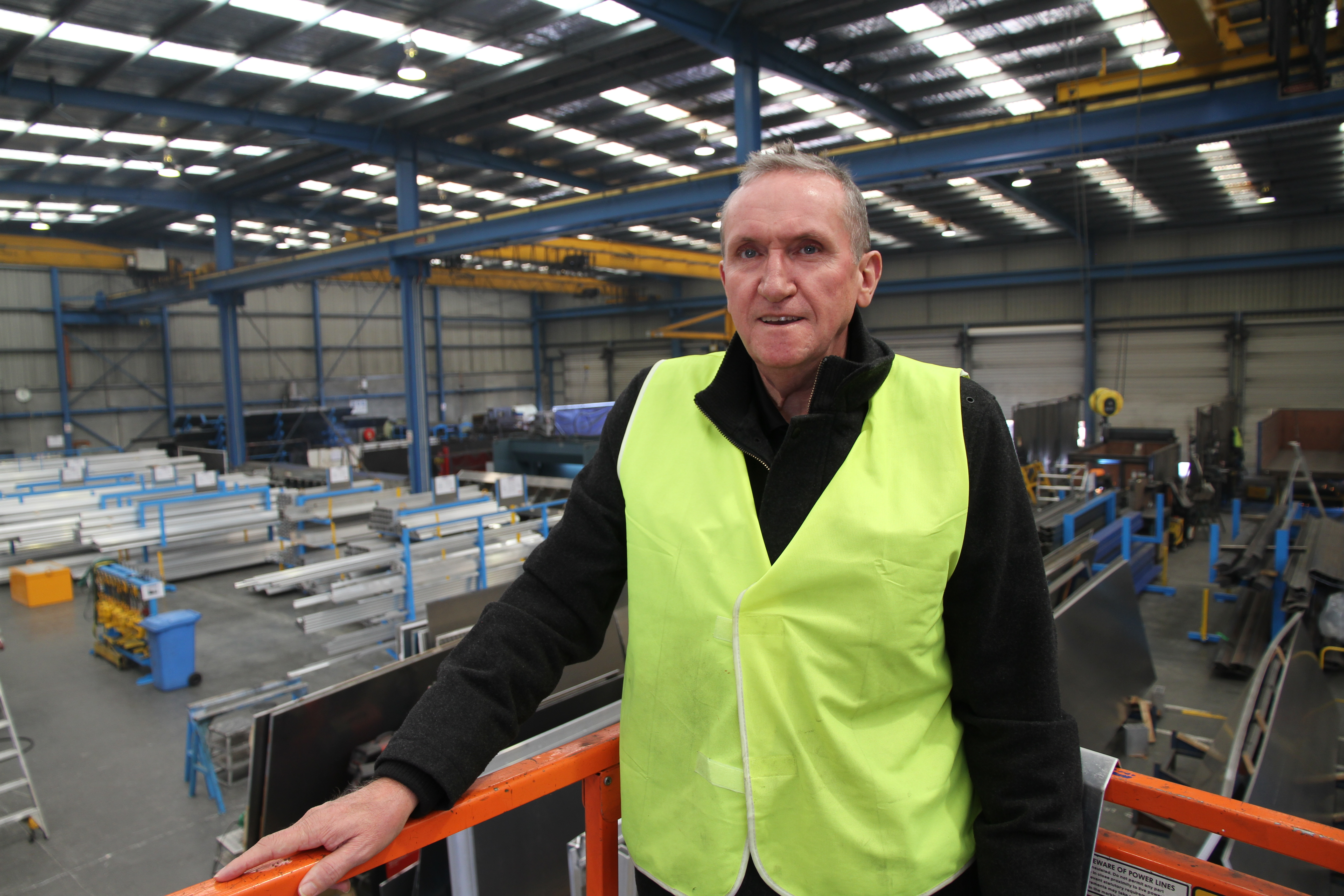Hercules Engineering continues to build on the efficiency innovation
When it comes to Performance-Based Standards (PBS), none have been quicker to adopt the opportunities for higher levels of operational efficiency than Victorian tipper operators.
So it should come as no surprise that for major tipper makers like Hercules Engineering, PBS has been also the driver of new levels of innovation in almost every part of the business.
Despite mainstream media reports about the demise of Australian industry, companies like Hercules – and there are plenty of them in the Australian road transport industry – have a past, present and future drawn from the qualities routinely espoused as the fabric of the national character; a character that invites all-comers to seek opportunity, knuckle down and simply strive to have a go.
In Hercules’ case, it all started with two immigrant German brothers, Stefan and Martin Hammel, doing exactly that in the mid-1960s.
They’re both gone now – Martin passed away in 1994 and Stefan last year – but driven by enterprise and initiative, they did indeed have a go and leave an enduring legacy forged on the premise that in all things there are no substitutes for quality and perseverance.
Martin would eventually create a company called Hamelex based at Hallam in Melbourne’s south-east, specialising in steel and aluminium tippers while in 1982,
Stefan and son Michael formed Hercules Engineering not far away at Bayswater.
Since then, of course, Hamelex White has become part of the expansive MaxiTrans trailer group and it’s perhaps ironic that the two biggest tipper brands in Australia today, Hamelex White and Hercules Engineering, are each derived from the efforts of two immigrant German brothers who simply used their own skill and initiative to make the most of opportunity.
They are all days remembered well by Hercules Engineering sales manager Kevin Wright who emphasises that the heritage of both Hammel brothers continues to live strong and proud within the Hercules brand.
After the death of Martin Hammel, Kevin joined Hercules Engineering in 1995 as the company continued to move forward under the careful guidance of Michael Hammel.
A year later Martin’s son Peter Hammel formed Hercules Queensland based at Richlands in Brisbane’s industrial west.
As Wright explains, the two entities run as separate businesses but work in close co-operation with the Melbourne operation building steel and aluminium tippers, and supplying steel chassis to Queensland where aluminium bodies are made and fitted ready for work.
 |
|
Hercules Engineering sales manager Kevin Wright. “These days PBS is pretty much second nature because we got involved early. It wasn’t hard to see that it would grow quickly.”
|
The two companies collectively employ almost 80 people and currently produce more than 500 units a year in the form of steel and aluminium dog trailers and semi-tippers, and tipping bodies for rigid trucks.
However, a new era emerged from around 2007 when there came cautious regulatory agreement and gradual implementation of the new productivity initiative known as Performance-Based Standards (PBS).
Yet even with the onerous challenges and initial costs of compliance, Victorian tipper operators were quick to recognise and adopt PBS.
Likewise, Hercules wasted no time in moving to design and build combinations with significantly greater payloads and operational viability.
“The first PBS units started coming into the industry in 2007 and 2008, and it has evolved and grown consistently since then,” Wright says.
“For suppliers like us it caused a reappraisal of our engineering capabilities and all the processes involved in building the different types of trailers.
“These days PBS is pretty much second nature because we got involved early. It wasn’t hard to see that it would grow quickly. There’s no question though, PBS has definitely created a lot of changes.”
PBS compliance places substantial demands on a trailer design’s adherence to stringent standards of weight distribution, stability and braking, he adds.
Therefore, each PBS design must be assessed and then certified by separate engineering specialists.
Hercules has formed close working relationships with Rob DiCristoforo of Advantia Consulting for design assessments and since 2009 has engaged the extensive commercial vehicle experience of highly regarded engineer Ken Cowell for PBS certification.
PBS has also led to changes in many other areas.
Chassis platforms, for instance, have been strengthened to cope with the substantially greater payloads of PBS-approved combinations while in the specific case of three-axle dog trailers, the centre of gravity has been progressively lowered to enhance stability.
“With or without PBS, a three-axle dog is the least stable of all the truck and dog combinations so it just makes sense to make the centre of gravity as low as possible,” Wright says.
PBS trailers now account for around 60 per cent of all production at Hercules’ Kilsyth factory and at least the same amount in the Brisbane operation.
Yet, as Wright quickly acknowledges, PBS work is no longer limited to new trucks and trailers.
“We’re doing a lot of refurbishment work, upgrading existing equipment to PBS standards by retrofitting new systems.”
As Hercules Engineering general manager Mark Hammel emphasises: “PBS has definitely been a good thing for the company and I think being involved from the start has been a major asset,”
“We could see the potential so we basically evolved with it and building PBS trailers of all sorts is normal for us.”
“And it drove a lot of innovations in our own in-house systems and processes,” Wright adds, “and that’s has been a benefit across the board, whether a trailer’s a PBS design or not.”


